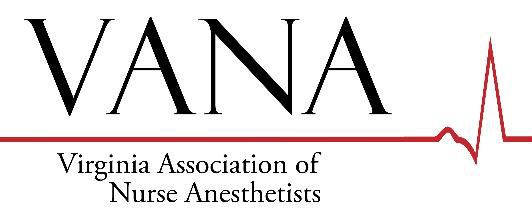Debbie Barber: Access to Care
This month, VANA spoke with Debbie Barber, CRNA from Kentucky about her experience as a CRNA for over 30 years in Kentucky, an opt-out state since 2012.
Debbie was elected president of the Kentucky board in 2012 and served on the AANA board from 2014-2016 as Region 2 Director. During this time, Barber started an all-CRNA practice and worked alongside many incredible CNRAs.
“Kentucky opt-ed out in 2012, the year I became KANA President, after years of advocacy and work. I can’t take credit for the shift – the membership put so much work into making this happen and I was thrilled to help usher in this change,” she said.
When asked about how the transition to an opt-out state impacted her work, Barber shared how she felt this change day-to-day in her practice.
“My life got simpler, but I was already doing the best work I could do. Occasionally, a patient at my practice will ask a question about a doctor. Those moments really have been an opportunity for me and my team. They open a conversation about full-practice licensing, about patient access and outcomes, and how in rural areas like our office, a CRNA practice provides access and better healthcare for residents.”
She explained how surgeons are brought in and over time have gotten more accustomed to the shift, no longer blinking an eye. They want to work with the best, most qualified and competent team members they can, and CRNAs are able to do their jobs to the best of their training and knowledge, supporting the rest of the care team, leading to successful outcomes for patients.
“My favorite part of being a CRNA in Kentucky is my ability to create a care plan, work through it, alternate, if need be, and then complete it. There’s a beginning, middle and end, which is different than a lot of other nursing. Being in an opt-out state allows me to do what I love, while best serving the patients I care about.
Kentucky is in a good place right now according to Barber, but there is always work to do. It’s important to stay vigilant, advocate and understand the laws that govern the profession. Being involved is so critically important to making progress for CRNAs. Barber shared, “Sharon Pearce, a former AANA president, spoke at an event I attended before I was involved. She asked attendees who would be advocating for us if we didn’t, and that stuck with me. This career isn’t owed to me, and I have a responsibility to make a difference.”
CRNAs have so many incredible gifts and have made so much progress thanks to the work and advocacy of others. Barber also highlighted her transition to education as a way she’s choosing to be involved and advocate for the profession.
“Guiding the next generation of CRNAs is so important, and I hope to share with them even one small slice of the wisdom my mentors have shared with me over the years. I tell every class that passes through my door that the most important thing – as important as advocacy and service and leadership – is to be a truly good provider. That is the best way we wil accomplish full practice authority. When surgeons want a room full of truly great CRNAs alongside them, we’ll have accomplished what we set out to do.”

